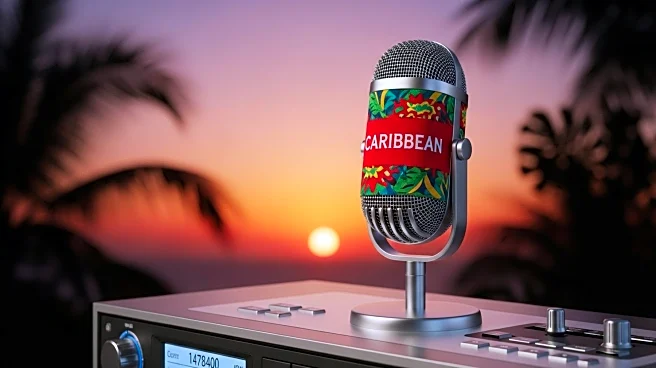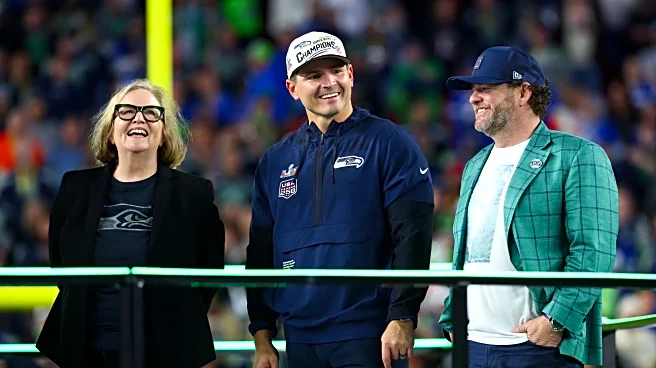What's Happening?
WYSO has introduced a new radio show titled 'Caribbean Colors,' which is available for streaming on demand for two weeks after airing. The show is hosted by Luckens Merzius, Miguelito Jerome, and Gerly Philidor, who are all community voices producers with backgrounds in media and community development. The program airs every Thursday night from 10 PM to midnight, offering listeners a blend of music and cultural insights. The hosts bring diverse experiences to the show, with Merzius and Jerome known for their work in community development and media, while Philidor has over 15 years of experience in journalism and media consulting.
Why It's Important?
The launch of 'Caribbean Colors' on WYSO represents a significant addition to the station's programming, emphasizing local talent and cultural diversity. By featuring hosts with strong ties to community development and media, the show aims to engage listeners with unique perspectives and foster a deeper understanding of Caribbean culture. This initiative not only enriches the station's offerings but also supports local voices, potentially attracting a wider audience interested in multicultural content. The program's availability on demand further enhances accessibility, allowing listeners to enjoy the show at their convenience.
What's Next?
Listeners can expect to tune in to 'Caribbean Colors' every Thursday night, with the opportunity to stream episodes for two weeks post-airing. The show's hosts may continue to expand their reach and influence within the community, potentially leading to collaborations with other media personalities or community leaders. As the program gains traction, WYSO might explore additional multicultural programming, further diversifying its content and audience base.
Beyond the Headlines
The introduction of 'Caribbean Colors' could have broader implications for community engagement and representation in media. By highlighting Caribbean culture and local voices, the show may inspire other media outlets to adopt similar approaches, promoting inclusivity and diversity. This shift could lead to increased opportunities for underrepresented groups in media, fostering a more equitable landscape.












